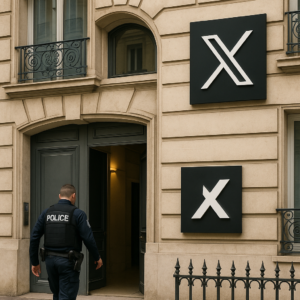A federal judge in Washington, D.C., on Monday signaled she may deny a temporary restraining order aimed at blocking Elon Musk’s Department of Government Efficiency (DOGE) from firing federal employees or accessing sensitive government records.
The lawsuit, filed by 14 state attorneys general, argues that Musk’s expansive authority violates the Appointments Clause of the U.S. Constitution, as he was neither nominated by the president nor confirmed by the Senate.
Following a virtual hearing that lasted nearly an hour, U.S. District Judge Tanya Chutkan said she would issue a ruling within 24 hours on whether to halt DOGE’s actions at several federal departments, including Education, Labor, Health and Human Services, Energy, Transportation, Commerce, and the Office of Personnel Management.
Judge Chutkan Questions the Urgency of Restraining Order
During the hearing, Judge Chutkan expressed skepticism about granting an immediate restraining order, describing the request as “prophylactic.”
“The court can’t act based on media reports,” Chutkan said. “The things that I’m hearing are concerning indeed and troubling indeed, but I have to have a record, and I have to make a finding on the facts before I issue something.”
She explained that for an urgent temporary restraining order (TRO) to be granted, the states must prove a threat of “extreme” and “imminent harm” that “can’t be undone”. She noted that while rehiring laid-off employees may be challenging, it is not irreversible.
“I’m not seeing it so far,” she said, referring to the harms claimed by the plaintiffs.
If the TRO is denied, Musk and DOGE could continue implementing large-scale cuts and embedding themselves within federal agencies.
Judge Presses Government on Lack of Transparency
While Chutkan seemed inclined to reject the restraining order, she criticized government attorneys for lacking clear details on DOGE’s activities, including the number of terminations across federal agencies.
“The firing of thousands of federal employees is not a small or common thing. You haven’t been able to confirm that?” she asked. “I think it will be very relevant to me to know whether thousands of federal employees have been terminated on Friday.”
Chutkan also described DOGE’s actions as “unpredictable and scattershot”, making it harder for plaintiffs to demonstrate immediate harm.
“This is essentially a private citizen directing an organization that’s not a federal agency to have access to the entire workings of the federal government—fire, hire, slash, contract, terminate programs—all without apparently any congressional oversight,” she said.
Elon Musk’s DOGE Agency Sparks National Security Concerns

Legal Challenges Mount Against Trump’s Executive Actions
The lawsuit against DOGE is one of at least 73 lawsuits challenging President Donald Trump’s executive actions since he returned to office. Many of these have resulted in temporary restraining orders against his administration.
Over the past week, federal courts have ruled that:
- DOGE is temporarily barred from accessing sensitive Treasury Department information and payment systems.
- Agencies managing public health data must restore their websites and databases.
- The State Department must pause Trump’s 90-day foreign aid freeze and halt the dismantling of the Consumer Financial Protection Bureau.
- The National Institutes of Health cannot reduce funding caps for research.
- The federal government cannot withhold funding from healthcare entities providing gender-affirming care for minors.
Despite these setbacks, the Trump administration has secured some legal victories, including:
- DOGE’s continued access to certain sensitive government records.
- Judicial approval for a controversial federal buyout program.
Trump and Musk Signal Pushback Against Court Decisions
In response to the legal challenges, Trump and his allies—including Elon Musk and Vice President JD Vance—have begun discussing strategies to challenge the judiciary’s interference.
“He who saves his Country does not violate any Law,” Trump wrote on social media over the weekend.
Additionally, the Trump administration has asked the Supreme Court to intervene, arguing that lower court rulings have “irreparably harmed” the presidency.
“The district court’s order exemplifies a broader, weeks-long trend in which plaintiffs challenging President Trump’s initiatives have persuaded district courts to issue TROs that intrude upon a host of the President’s Article II powers,” Solicitor General Sarah Harris wrote in a Supreme Court filing.
The legal battle is expected to intensify, with at least eight additional cases scheduled for court hearings this week.






